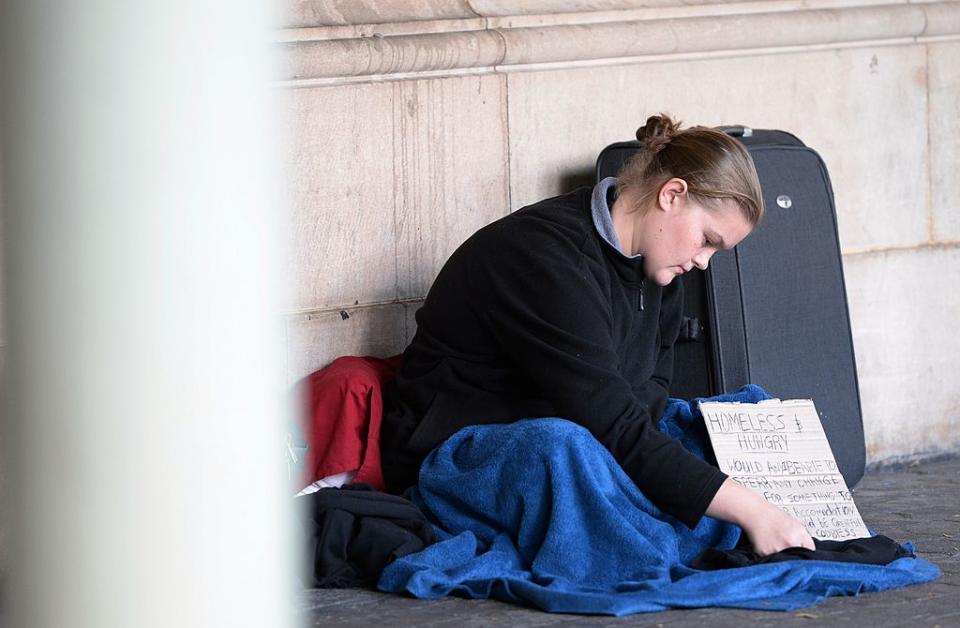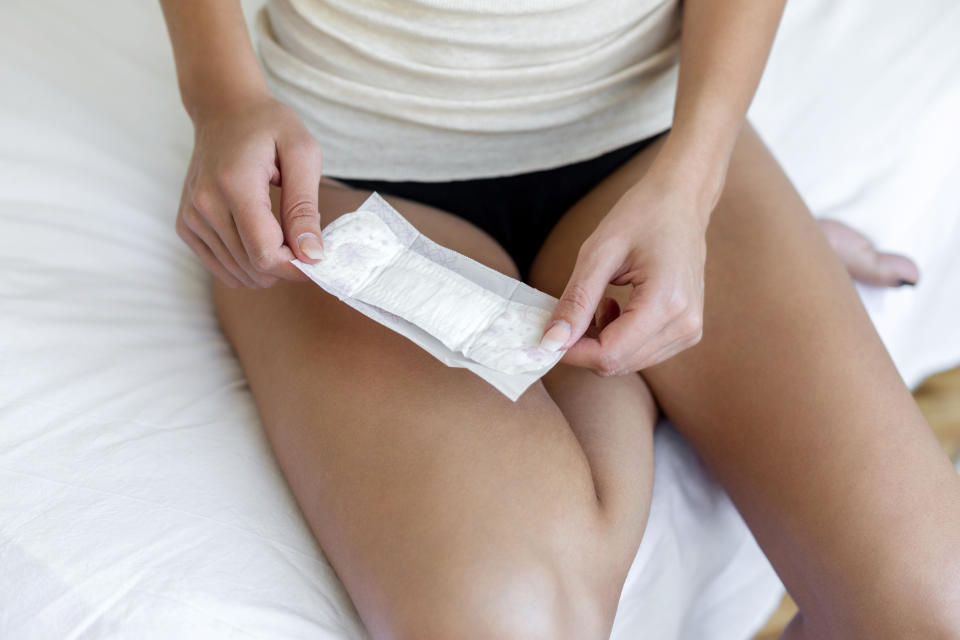The demeaning truth of what it means to be poor in Australia

Over three million people live below the poverty line in Australia ($433 weekly income), which includes 739,000 children.
That means around one-in-eight Australian adults and one-in-six children are living below the line, with many of those affected living in ‘deep poverty’ – $135 per week below the definition.
There are many staggering consequences of living below the poverty line, like homelessness, inadequate medical or dental care and poor hygiene.
Also read: What will it take to fix homelessness in Australia?
Also read: Handouts miss mark for homeless Australia
These consequences are especially true for Indigenous Australians who, on average, die around 20 years younger than their non-native counterparts.
But there’s another often-forgotten consequence that solely affects women: period poverty.
Period poverty refers to having a lack of access to sanitary products due to financial constraints, and it’s a global issue.

Around the world, up to 500 million women and girls are living each month in period poverty. In Australia, that figure is over 1 million.
Rochelle Courtenay, founder of not-for-profit organisation Share the Dignity, told Yahoo Finance the issue is greater than one would ever imagine.
Australian Bureau of Statistics Census data from 2016 found there had been a 13.7 per cent increase in homelessness in the last 5 years, with 116,427 Australians without homes.
On Census night, 58 per cent of homeless Australians were male and 42 per cent were female.
And there’s set to be a huge wave of homeless women, after new data revealed Australia would need to build more than 720,000 extra social dwellings in the next 20 years to meet the oncoming surge in demand for people at risk of homelessness.
And it’s these women that Share the Dignity thought it was primarily servicing - but it turned out, there are many more.
“There are drought-stricken farming communities. There are remote Indigenous communities. There are remote communities where culturally women don’t feel like they can buy the products.”
And that stems from a lack of education, Courtenay said.
“We grew up in a home where it was talked about. And, I say this with such respect, but poverty breeds poverty, right?
“If you are brought up in a home where your mum never talked to you about your period, then that mother will never talk to her kids about periods. How do we break that cycle?”
The answer is education, she says - and not just about the menstrual cycle.
“It’s about educating about money and never allowing yourself to be in a relationship where a man controls all of your money, and you never have an exit strategy. It’s about never losing control of your own name.”
Founder of not-for-profit The Rough Period, Noni Cragg, told Yahoo Finance the charity often drops care packages to women in domestic violence shelters.
“They’re like safe houses, so the address isn’t given out on social media or anything. It’s all very private, and it keeps them safe from any kind of harm.”
And street drops are essential too, Cragg says, with women sleeping rough forced to improvise.
“The most intense stuff I’ve seen is socks stuffed with newspaper for absorbing, or people just wearing trackies and not moving. The amount of ladies I’ve seen in Central Station bathrooms just having to figure something out with toilet paper - it’s whatever they can get their hands on.”
Courtenay said she’d heard of women in Papua New Guinea rewashing disposable pads to get through the week.
How charities work to break the cycle
The problem with period poverty is it doesn’t end with the donation of a single pad.
“You can give a woman a warm jacket and it will keep her warm for years. But there’s always another period.”
It’s not difficult to get women to donate pads or tampons, Courtenay says, but the issue is seemingly never-ending.
The charity has worked to develop vending machines and place them in community centres, schools, hospitals and women’s legal centres.
There are currently around 100 ‘Dignity Vending Machines’.
Each machine holding a number of period packs, and inside those packs is two pads and six tampons.
They dispense for free, and there’s a time delay between each dispense of anywhere between five and ten minutes.
Earlier this year, supermarket juggernaut Woolworths announced it would back the cause, and donate five cents of every pack of sanitary product bought at the supermarket towards more vending machines.
The number of vending machines is expected to double by the end of the year.
But there are also charity drives called ‘It’s in the Bag’ where women donate old handbags full of sanitary products to women in need, and luncheons to raise funds for the charity.
Cragg’s charity The Rough Period provides women sleeping rough in Sydney with safe and clean sanitary items.
They physically drop off care packages to women sleeping on the streets and in shelters or safe houses. Cragg said the care packages are filled with tampons, pads, shampoo and conditions, soaps, toothpaste and toothbrushes and deodorant.
What needs to be done
While the the tampon tax removal was a major move in the right direction, The Rough Period has questioned whether this actually had an impact on the price of packets.
“I’m kind of curious as to whether that was all a bit of lip service,” Cragg said. “I don’t want to diminish the amount of effort that the women who campaigned against the tax put in, but at the same time, I haven’t seen anything change.”
A bigger move, Cragg said, would be to have vending machines distributing period packs in every school and every homeless shelter.
“I would love it for anywhere in a high-traffic public area, like stations. It’s deplorable how much they charge people in public bathrooms - sometimes I’ve seen pads for $5 for a single pad.”
In April this year, Victoria became the first state to provide over 27 million free pads and tampons to girls in state schools every year.
But removing the stigma around menstruation is also key, Plan International Australia youth activist Elizabeth Payne said.
“Start with open, nonjudgmental discussions with friends,” she wrote in The Guardian.
“For parents, consider the messages you pass on to your children. If they aren’t comfortable talking to you about menstruation, it’s going to be a lot harder for them to talk about it with others.”
And while donating sanitary products to charities like The Rough Period and Share the Dignity is a step, ultimately it will take structural reform to work towards a recognising access to menstrual health and hygiene is a right,
Make your money work with Yahoo Finance’s daily newsletter. Sign up here and stay on top of the latest money, news and tech news.

 Yahoo Finance
Yahoo Finance 